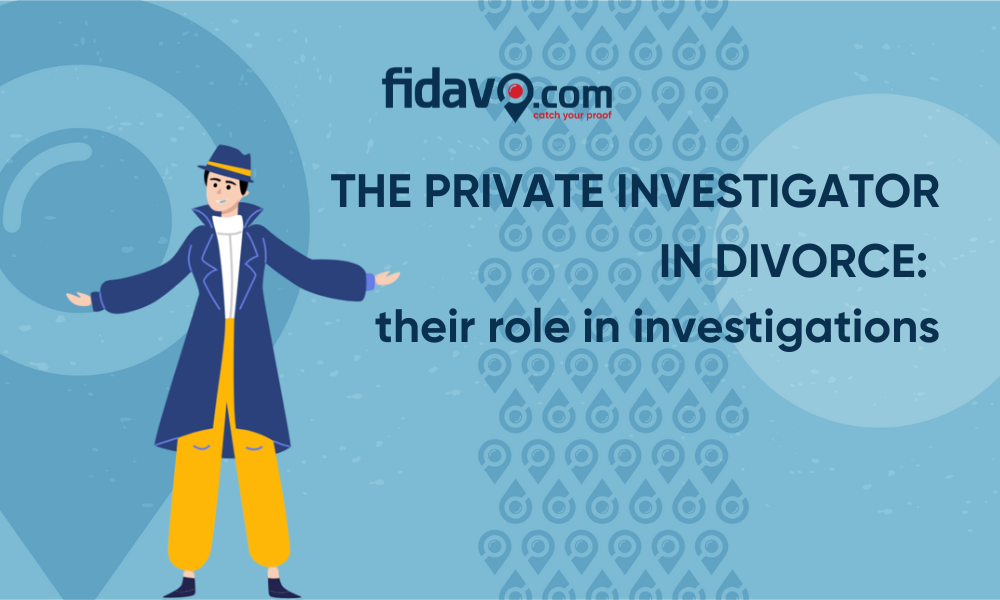The Private Investigator in Divorce: their role in investigations

What is the role of a private investigator in divorce? Can they conduct investigations after the separation of two spouses?
These are very common questions among non-professionals who realize how situations and life itself are constantly evolving, capable of surprises and unforeseen events.
In the following paragraphs, we will delve into this topic, which is always highly relevant given the high percentage of marriages ending badly. We will highlight whether and how a detective can operate in this context, the reasons for involving them, and the value of the evidence collected in front of the competent court.
Can a private investigator investigate a divorce case?
The answer is yes: the role of a detective is crucial not only during separation but also in divorce cases.
A necessary condition for seeking the support of a private investigative agency is that the procedure for dissolving the marriage bond is non-conjoint or convertible in that sense.
Consensual divorce, in fact, requires an agreement between the former spouses, even when the separation has been judicial.
The key areas where it is essential to avoid conflicts relate to alimony, the assignment of the marital home, child custody, as well as protection against stalking, harassment, threats, and illegitimate claims.
New rules for divorce: can I convert a judicial procedure into a consensual one?
With the introduction of the so-called "single procedure" (Legislative Decree 149 of October 10, 2022), as of March 1, 2023, it is possible to initiate a non-conjoint divorce case from the first separation hearing, if it is not consensual. However, there is nothing preventing the conversion of the procedure at a later stage if an agreement can be reached with the other party.
Why hire a private investigator for a divorce?
There are many good reasons to seek the services of a detective after the separation order.
One reason is economic: a private investigative agency can verify the presence of hidden income, the beginning of cohabitation with another income-producing person, and any undisclosed changes in employment status.
This last point applies particularly to those who have declared themselves unemployed, receive state benefits (such as basic income), or other forms of financial support, including spousal support and the marital home.
The work of a private investigator can lead to a revision of agreements and clauses in such cases.
Another reason to rely on a private investigative agency is the custody of minor children or, in the case of children who have reached 18 years of age, those with psycho-physical disabilities or incapable of understanding and making decisions.
Through thorough yet discreet investigations, the professional will be able to assess the adequacy of the spouse in exercising parental authority.
The use of threats, blackmail, harassment, and stalking by the ex-husband (or ex-wife) also justifies the engagement of a private investigator for someone in the process of getting a divorce. In such a situation, timely intervention can prevent tragic consequences for you and your children.
Are the collected pieces of evidence valid in court?
Certainly, as long as the following conditions are met:
- The practices are in line with current legal provisions, especially those regarding privacy.
- The private investigator must possess a valid Public Security License issued by the Prefecture.
In the vast majority of non-conjoint divorce cases, the judge only requires the detective's dossier, along with the relevant supporting evidence.
These may include photos, videos, audio recordings made in person, non-confidential information, and, limited to documentary evidence, certifications obtained from accredited sources with open access.
Sometimes, the private investigator may be called by the judge as an eyewitness. This happens when there is a possibility of the subject under investigation challenging the collected material.
Can I conduct the investigation myself?
Technically, you could, but we strongly advise against it, especially if you are not familiar with the standard procedures and current regulations.
One of the risks for someone who is not a private investigator is violating the law, thus committing administrative offenses and criminal acts, the latter punishable by imprisonment and hefty fines.
To avoid such a situation, we urge you to contact a reputable investigative agency with a physically registered office at the Chamber of Commerce. The employees should possess the necessary license and meet all the requirements for conducting such activities (degree, internship certification, specialization).
In addition to verifying their education and certifications, make sure to rely on professionals who operate ethically and, most importantly, provide you with an immediate assessment of the feasibility of the process, including potential unforeseen circumstances.
Only in this way can you put an end to certain situations without negative consequences in the future.
 EN
EN  IT
IT 